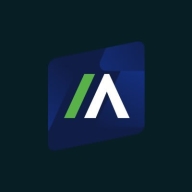

Check Point Remote Access VPN and Absolute Secure Access are remote access solutions. Absolute Secure Access seems to have the upper hand due to its robust capabilities, despite costing more.
Features: Check Point Remote Access VPN offers comprehensive security policies, extensive compatibility with various platforms, and enhances security infrastructure. Absolute Secure Access provides endpoint-centric security, focuses on data protection, and offers insight capabilities. Check Point emphasizes platform compatibility, while Absolute focuses on endpoint data intelligence and security.
Ease of Deployment and Customer Service: Check Point Remote Access VPN is known for straightforward deployment and an extensive support framework allowing quick system integration. Absolute Secure Access provides a cloud-based deployment model emphasizing simplicity and comprehensive service options, advantageous for minimizing downtime. Check Point focuses on legacy system integration, contrasting with Absolute's streamlined cloud-based approach.
Pricing and ROI: Check Point Remote Access VPN has a lower initial setup cost, appealing to budget-conscious companies seeking immediate cost efficiency. Absolute Secure Access, while having a higher initial investment, provides substantial long-term ROI, making it appealing for organizations prioritizing future-proof security. Check Point offers an initial cost advantage, whereas Absolute focuses on long-term value and enhanced security features.
| Product | Market Share (%) |
|---|---|
| Check Point Remote Access VPN | 3.8% |
| Absolute Secure Access | 0.6% |
| Other | 95.6% |

| Company Size | Count |
|---|---|
| Small Business | 39 |
| Midsize Enterprise | 31 |
| Large Enterprise | 33 |
oday’s enterprises are highly dependent on mobile networks for access to critical applications. But network performance directly impacts application performance, leading to skyrocketing helpdesk costs. NetMotion Mobility® mobile VPN software maintains resilient, reliable connections and optimizes performance through the most challenging wireless-network conditions. The result? Seamless use of mobile networks and applications for mobile workers, and better experiences for the customers they serve.
Remote secure access VPN is a solution that provides users with remote access to an organization’s network. The host may have VPN client software loaded or use a web-based client. The solution leverages security features like multi-factor authentication, endpoint scanning, and encryption of all data in motion.
Check Point Remote Access VPN provides individuals with protected and efficient access to a company network from anywhere. This strategy fosters collaboration and connectivity between distributed teams and offices.
Features of Check Point Remote Access VPN
Key features of the secure remote access VPN include:
The system enforces endpoint security with endpoint compliance. It monitors and verifies the security status of each endpoint and reports back to the Security Gateway. The gateway, in turn, checks the compliance level and directs the connectivity to the right resources.
Users can deploy the Remote Access VPN in one of three ways:
Remote Access VPN is centrally managed. The centralized console enables management and enforcement of policies with a single log-in.
The Remote Access VPN has a web portal that users can use to connect securely to corporate applications, such as web-based resources, file-sharing, and email. Administrators can customize the web portal to match the brand identity.
Remote Access VPN offers two choices for remote access:
The authentication features include password management, RADIUS challenge/response, CAPI software, and hardware tokens. P12 certificates, and SecurID.
The system establishes a VPN tunnel on demand. It also re-arranges connections when roaming. The tunnel can automatically tear down when the user is on the corporate LAN.
There are several connection features, such as Hotspot detection, office mode IP, split tunneling, and automatic fallback to HTTPS.
Benefits of Check Point Remote Access VPN
One of the key advantages of Remote Access VPN is that it provides remote workers with a secure way to connect to a corporate network from any device, including their personal devices. The data encryption in transit enables them to securely access the resources they need for their tasks.
It also provides IT support and technicians with a faster way to troubleshoot software issues. In the case of a ticket, IT doesn’t need to go to the server location to fix the problem but can troubleshoot it remotely.
A remote secure access VPN is also an affordable alternative for small and medium-sized businesses, without requiring expensive infrastructure.
Reviews from Real Users
A Global IT Network and Security Service Senior Specialist at a manufacturing company who uses Check Point Remote Access VPN says, "I found the MEP feature the most valuable. This has improved users' latency allowing the users to connect to the nearest Azure Check Point VM."
"Organizations that already use the Check Point NGFW Solution do not require any additional hardware, which makes the implementation straightforward and reduces the time to go live," explains Basil D., Senior Manager at a financial services firm.
Manuel B., a Voice and data infrastructure specialist at a tech services company, says that "The IPSec VPN, Mobile Access, and Identity Awareness are three of the blades with which we have been working with since the pandemic. This has given us great mobility, making our network more dynamic."
We monitor all Enterprise Infrastructure VPN reviews to prevent fraudulent reviews and keep review quality high. We do not post reviews by company employees or direct competitors. We validate each review for authenticity via cross-reference with LinkedIn, and personal follow-up with the reviewer when necessary.